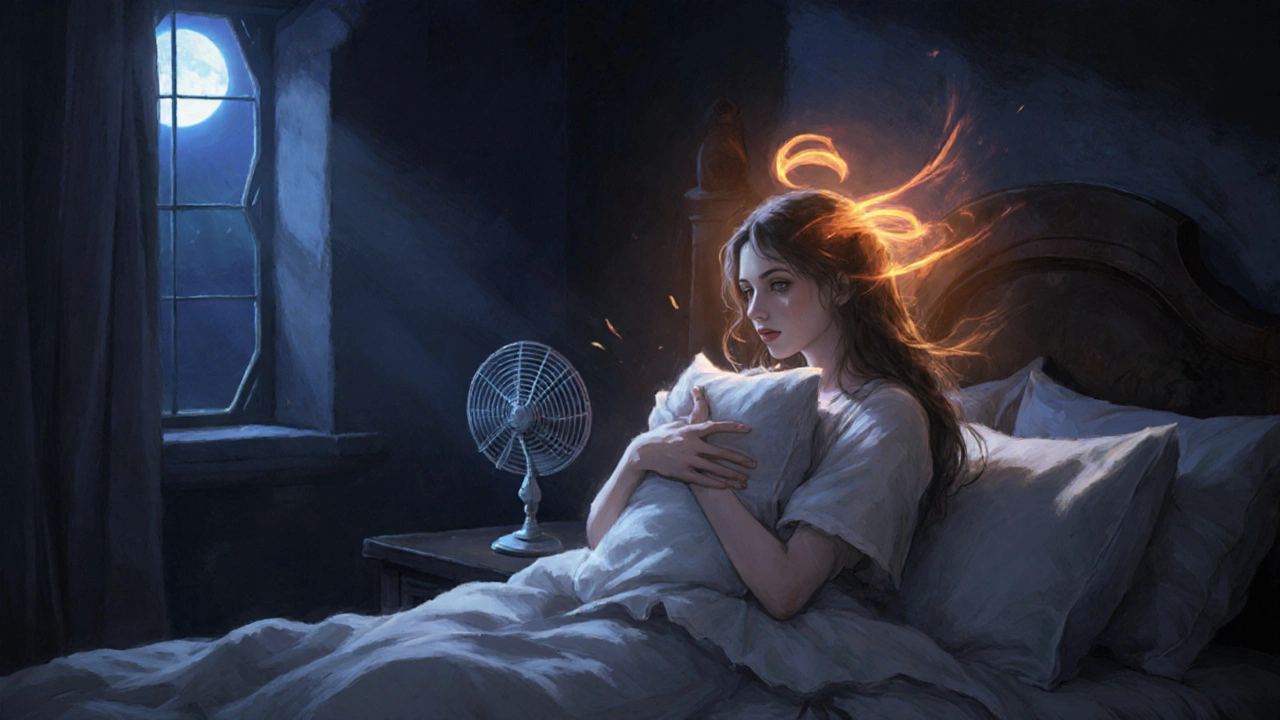Night Sweats: Causes, Connections, and What You Can Do
When you wake up soaked in sweat—no fever, no extra blankets—it’s not just bad luck. This is night sweats, excessive sweating during sleep that soaks clothing or bedding without an obvious environmental cause. Also known as sleep hyperhidrosis, it’s not a disease itself, but a sign something else is going on inside your body. It happens to men and women, young and old, and often gets brushed off as stress or a warm room. But if it’s regular, it’s your body’s way of saying: pay attention.
One of the most common triggers is menopause, a natural hormonal shift that affects millions of women, often bringing hot flashes and night sweats as key symptoms. But it’s not the only one. infections, like tuberculosis or endocarditis, can trigger persistent night sweats as the immune system fights off hidden invaders. Certain medications, including antidepressants, diabetes drugs, and even hormone therapies, are known to cause sweating as a side effect. Even low-grade cancers like lymphoma can start with this symptom—no rash, no pain, just drenching night sweats.
What ties these together? Your body’s thermostat. Night sweats happen when your autonomic nervous system gets mixed signals. It thinks you’re overheating, so it turns on the sweat pumps—even when you’re cold. That’s why it’s not about the room temperature. It’s about what’s happening inside: hormones dropping, infections rising, or chemicals from pills disrupting your internal balance.
Some people chalk it up to aging or bad sleep. But if you’re waking up every night with wet sheets, or if it’s paired with weight loss, fatigue, or fever, it’s not normal. The posts below dig into real cases—how chlorthalidone might trigger sweating, how doxycycline or antidepressants can be the hidden cause, and how conditions like Parkinson’s or diabetes play into it. You’ll find clear comparisons of meds that help, and ones that make it worse. No fluff. Just what works, what doesn’t, and what you should ask your doctor next time you wake up soaked.
Menopause and Sleep: Practical Tips for Better Rest
Discover why menopause disrupts sleep and learn practical, evidence‑based tips-from cooling your bedroom to hormone therapy-to finally enjoy uninterrupted rest.






